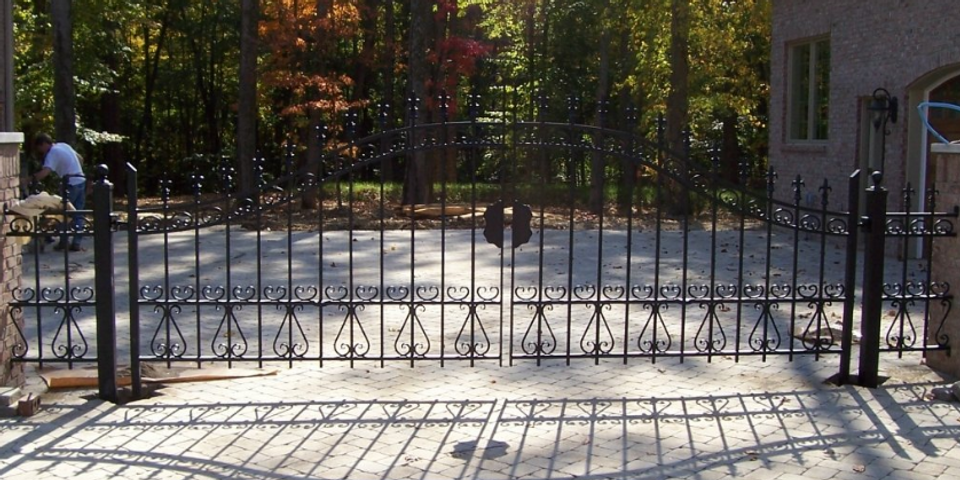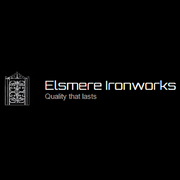
When looking for beautiful fencing for your property, it can be easy to get confused by the wide variety of materials available. Homeowners interested in an upscale look know that metal is their best option, but they may wonder if there really is a difference between wrought iron fencing and steel. As the team at Elsmere Ironworks in Erlanger, KY, explains, wrought iron gates and fences offer several significant advantages over their steel counterparts.
The following are just a few of the ways that wrought iron fencing is a superior alternative to steel:
- Detail Work: Steel fencing has gained popularity among manufacturers in recent years because it is easy to roll, cut, or stamp. However, steel isn’t nearly as good for detail work. As a basic element—rather than an alloy—iron is more easily workable for shaped detailing, allowing manufacturers to achieve a unique, intricate design.
 Larger Tips: A popular feature for wrought iron fencing is referred to as a filial tip. This detailed piece lends the top of your fence pickets a distinct, upscale look that can’t be replicated with other materials. By working with iron, the tips are larger and sturdier. Steel fences can only use plastic or die-cast tips that are smaller and flimsier.
Larger Tips: A popular feature for wrought iron fencing is referred to as a filial tip. This detailed piece lends the top of your fence pickets a distinct, upscale look that can’t be replicated with other materials. By working with iron, the tips are larger and sturdier. Steel fences can only use plastic or die-cast tips that are smaller and flimsier.- Strength: Iron has great durability that far surpasses that of other fence materials. By using custom iron components, every part of your fence or gate will have the strength to handle the demands of everyday use—even the small, overlooked parts such as fence brackets. Superior strength and durability mean less maintenance and fewer repairs in the future.
For beautiful, one-of-a-kind wrought iron fencing, turn to Elsmere Ironworks. The team at this family-owned business prides themselves on their custom iron gate designs that will be the perfect fit for your property. To learn more about their design services or to schedule a free consultation, visit them online or call (859) 727-2505.
About the Business
Have a question? Ask the experts!
Send your question

